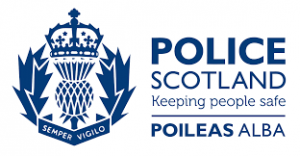[vc_row][vc_column][vc_column_text css=”.vc_custom_1600071958640{margin-bottom: 0px !important;}”]
Please accept my apologies for this late posting, Sandra x
Wednesday 9th September 2020
Suicide Prevention Day
Thursday September 10th marks this year’s Suicide Prevention Day and Police Scotland have been proud to support it.
Suicide Prevention Day is a reminder that we can all save a life by talking openly and asking someone if they are thinking about suicide if we are worried about them.
We know that most people contemplating suicide do not want to die – they want to end the pain they are in. Talking openly and compassionately about suicide therefore reduces the risk of death. We are committed to playing our part in reducing the tragic and preventable deaths by suicide in Scotland.
In 2018 there were 784 deaths by suicide in Scotland, 2 a day. Suicide remains a leading cause of early death, and whilst the figures show that the gap between the number of people who die by suicide in rich and poor areas is closing, men continue to be three times as likely as women to take their own lives.
We also know that people from LBGTQ communities, in prisons and involved within the criminal justice system, and those with substance abuse issues are more likely to have suicidal thoughts.
My officers often attend incidents of completed or attempted suicide and as such they have – undergone extensive training to recognise and intervene to prevent such tragedies. They also see the devastating impact that suicide has on friends and family.
Scotland’s Suicide Prevention Action Plan aims to reduce suicide by 20% by 2022 and we can all play our part by looking out for signs of despair. And this is equally pertinent in the workplace as 66% of people who died by suicide were in employment.
This is even more important this year with many people working remotely and potentially in isolation; as well as the impact on mental health of the Covid restrictions.
The clearest and direct warning signs are behaviours that indicate the person is thinking about or planning suicide, or is preoccupied or obsessed with death. Suicide warning signs may be spoken, appear in text communications, social media or reported by another colleague.
• Talking (or writing) about wanting to die or hurt or kill oneself.
• Talking (or writing) about feeling hopeless or having no reason to live.
• Talking (or writing) about feeling trapped or in unbearable pain.
• Talking (or writing) about being a burden to others.
• Looking for ways to kill oneself, such as searching online for suicide methods or seeking access to firearms, pills or other means of suicide.
INDIRECT CHANGES IN BEHAVIOUR
Other warning signs are the more indirect changes in behaviour which may indicate someone is experiencing a mental health problem, and which may include suicidal thoughts or plans.
The following signs do not necessarily mean the person is thinking about suicide, but may indicate they are struggling:
Changes in Productivity
1. Deterioration in performance at work
2. Lethargy in a previously energetic person
3. New pattern of unexplained lateness or absences
4. Recent inability to concentrate on work
5. Recent inability to complete work
Changes in Social Functioning
1. Deterioration in social functioning
2. Withdrawal from colleagues, isolation
Changes in Personality or Behaviour
1. Extreme mood swings
2. Acting in an anxious or agitated way
3. Showing rage, uncontrolled anger
4. Behaving recklessly
Increased Alcohol or Drug Use
Changes in Eating and Sleeping Patterns
Signs of (Self-inflicted) Physical Harm
For more help and information please see
www.chooselife.net
www.samaritans.org[/vc_column_text][/vc_column][/vc_row]
